"In this film record set in the beautiful Cumbrian countryside, sheep shearing and other farming activities take second place to fun. Whether swimming and splashing in a stream, feeding lambs, or taking a rowing boat out on the lake, there is plenty to keep children - and adults - busy. And of course we mustn't forget that essential outdoor activity - a picnic in the sunshine and fresh air." (BFI Player)
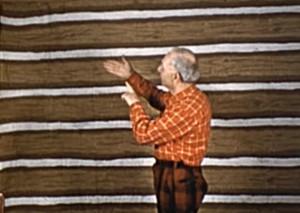
A family permits a lone hunter to stay in their cabin for the night. The hunter entertains the children with magic tricks. Later, the hunter's addition to the cabin sparks a debate over who will sleep in the cabin's beds.
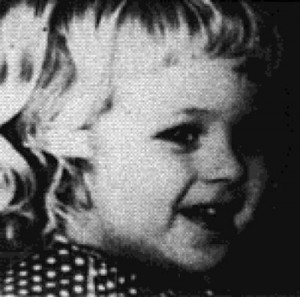
"Once again the Lawlers permit us an intimate glimpse into the lives of their family. Number 10 (boy or girl?) has joined the family and introduces all the brothers and sisters, who, in turn, tell us of their personal doings. The time has come for Number 10 to undergo the ritual of his first haircut. The whole family participates, and each child vividly recalls his or her own experience of the "first haircut." Mother's tears fall as the curls fall, but all is cheerfully forgotten as their beautiful "girl" emerges from the barber's apron a handsome boy. All narration, in each child's voice, is in rhyme, and the charm of the children is heard as well as seen, making this a truly outstanding family film" PSA Journal, Oct. 1963, 40.
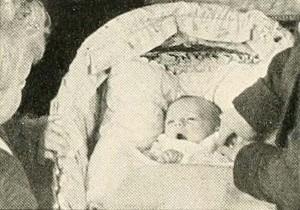
"With Number Three Arrives, John Martin carries on the continuity both of his charming family and of his delightful films of them, so ably introduced by his last year's award winner, A Day with the Young Martins. Here again are the sure feeling for cinematic story technique, the nicely effective angles and the smooth sequencing which belies any need for titles. Added to these deft and familiar abilities of Mr. Martin's work, the current production brings to light a delightful flair for farce comedy by the harassed father and a family terrier rivaling, on a small scale, the best of Hollywood's canine thespians. Once more, Mr. Martin has proved beyond argument that a well planned family film may be of interest to all who see it." Movie Makers, Dec. 1937, 630.
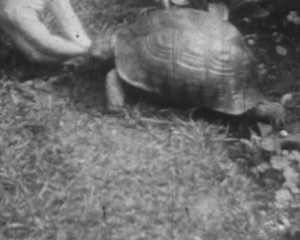
"Amateur filmmaker, cinema historian and railway engineer H.A.V. Bulleid documents a day in the life of the Bulleid family at Wood House on Hadley Common in Hertfordshire. In the morning, Marjorie Bulleid walks on the common with her two youngest boys and the family dogs, as trains pass by on the nearby Great Northern Railway Line. Returning home, the dogs continue playing in the backyard, where the family cook hand feeds a large cat. Later that morning, O.V.S. (Oliver) Bulleid takes the family on a leisurely drive through the highways and byways of Hertfordshire, returning home for afternoon tea in the backyard. After tea, the family play with their pets - dogs, cats and a turtle - and pose for photographs" (EAFA Database).
"J. F. Hollywood, ACL, built his 8mm. film, Opera Night, around a child's dream and which involved magic. The tricks were accomplished by stopping the camera, holding the action, making the desired change in the subject and starting the camera again." Movie Makers, Dec. 1935, 527.
"Joseph F. Hollywood of New York City entered 'Opera Night,' shot entirely indoors with some trick stop action built around his children. A deserving effort that receives honorable mention." American Cinematographer, Feb. 1936, 73.
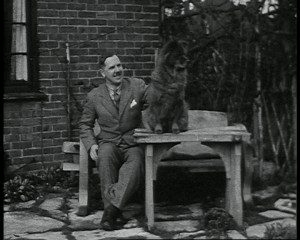
"Film of the Chow Chow dogs owned, and possibly bred, by Eustace and Eunice Alliott in the mid/ late-1930s. Shot primarily in the gardens of the Alliott house in Amersham" (EAFA Database).
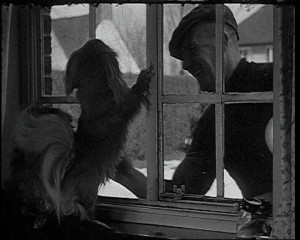
"Film of two Pekinese dogs at home and in the country, detailing their development as they age. Set in the garden and the home of Laurie and Stuart Day, as well as in surrounding countryside, the film makes use of seasonal changes to record the ageing of two Pekinese dogs" (EAFA Database).
"A boy and his dog - the love, companionship and understanding between these two develop a deep bond. When the bond is broken, it is as though a part of life is gone. The fruitless search, the unanswered prayers take the spark out of a lively little boy. Even an appealing puppy substitute does not fill the gap for him, but does compensate a heartbroken little girl who has to give up the dog she has "found" and returned to his delight master" PSA Journal, Oct. 1963, 39.
Total Pages: 15